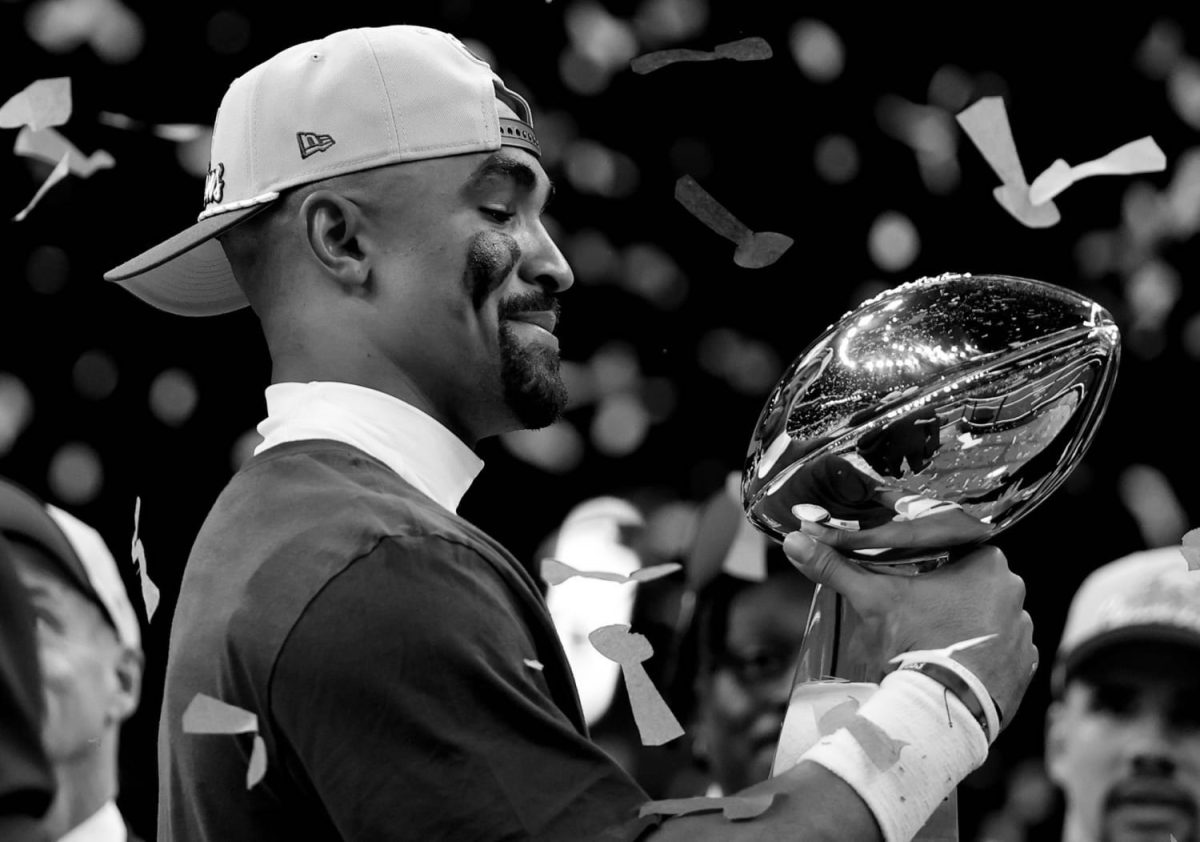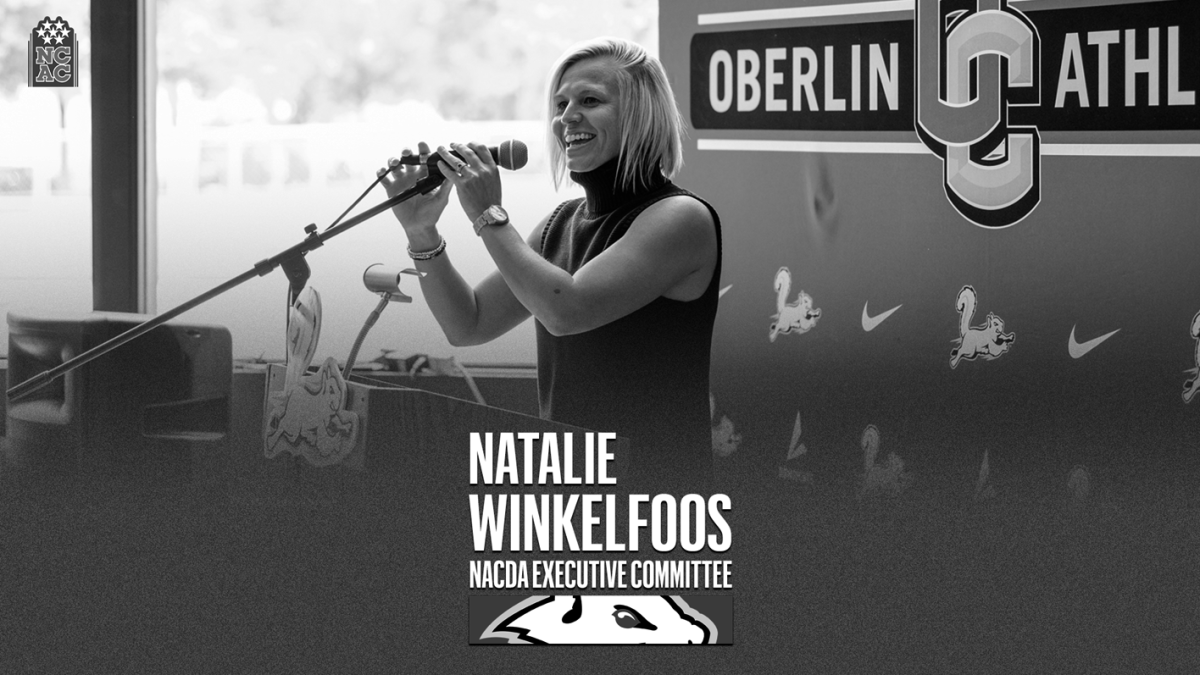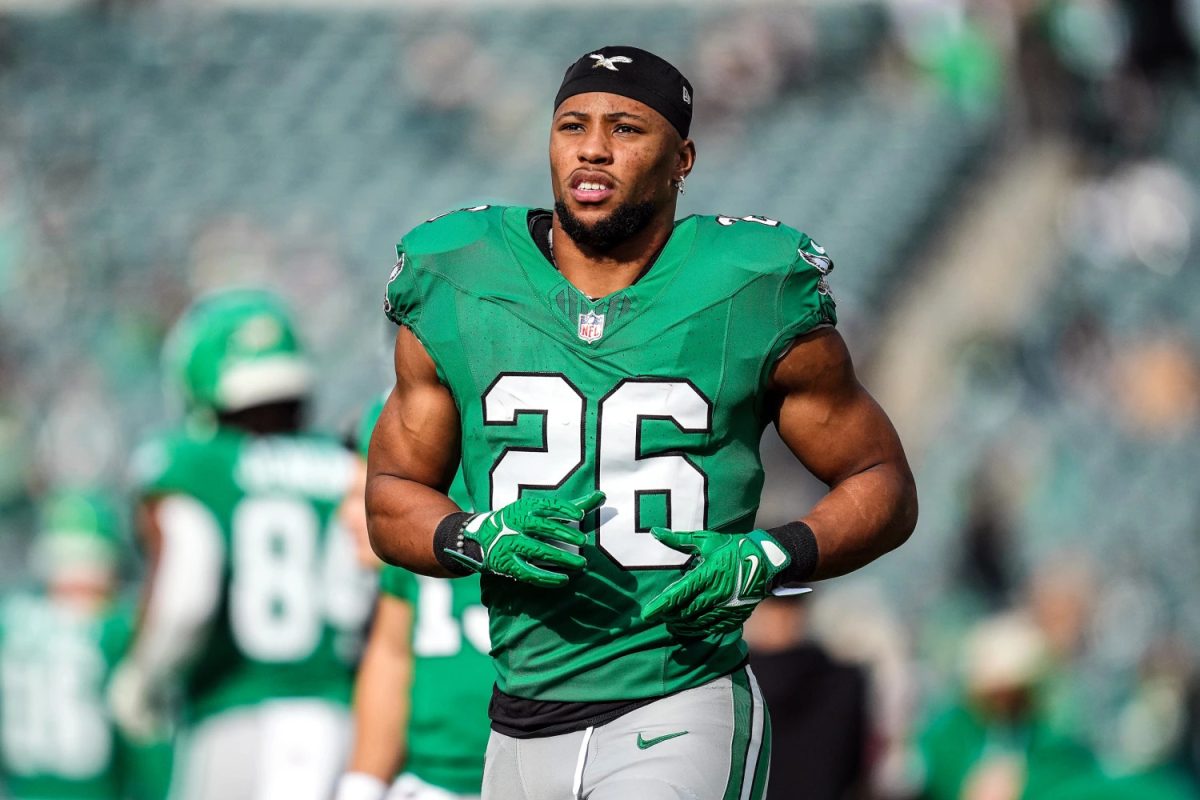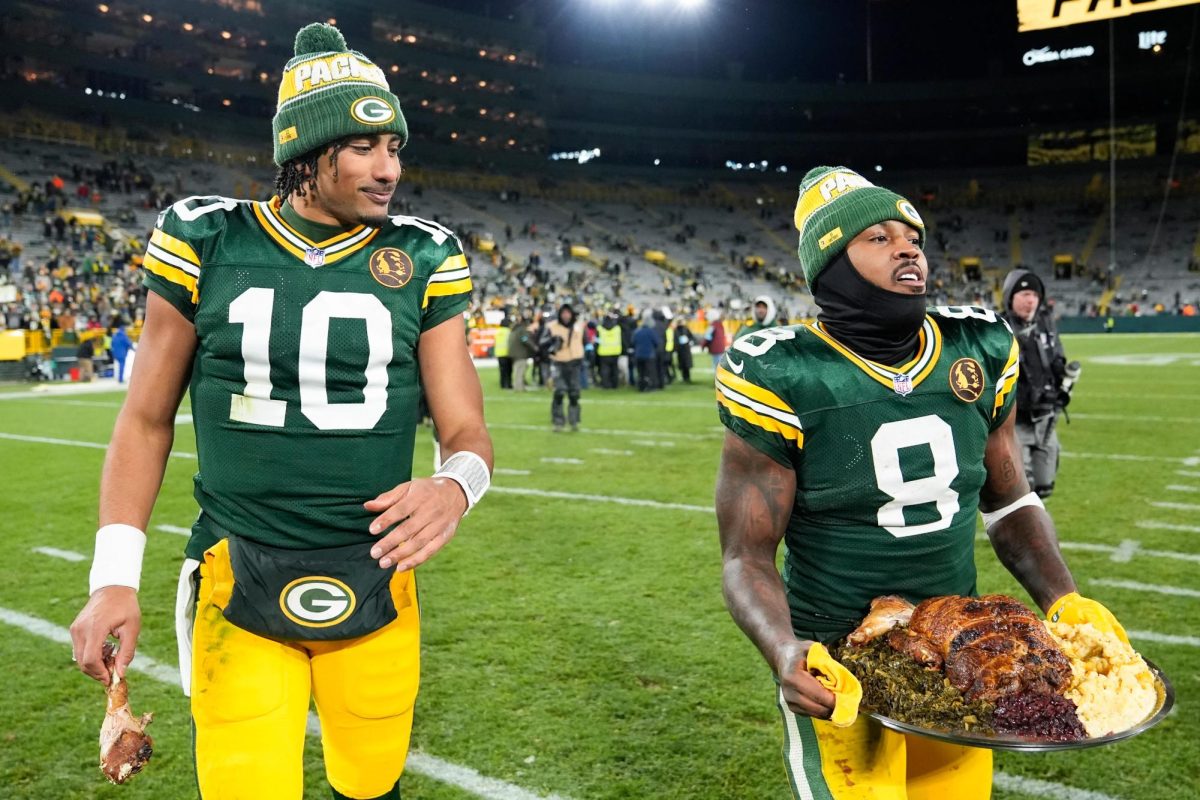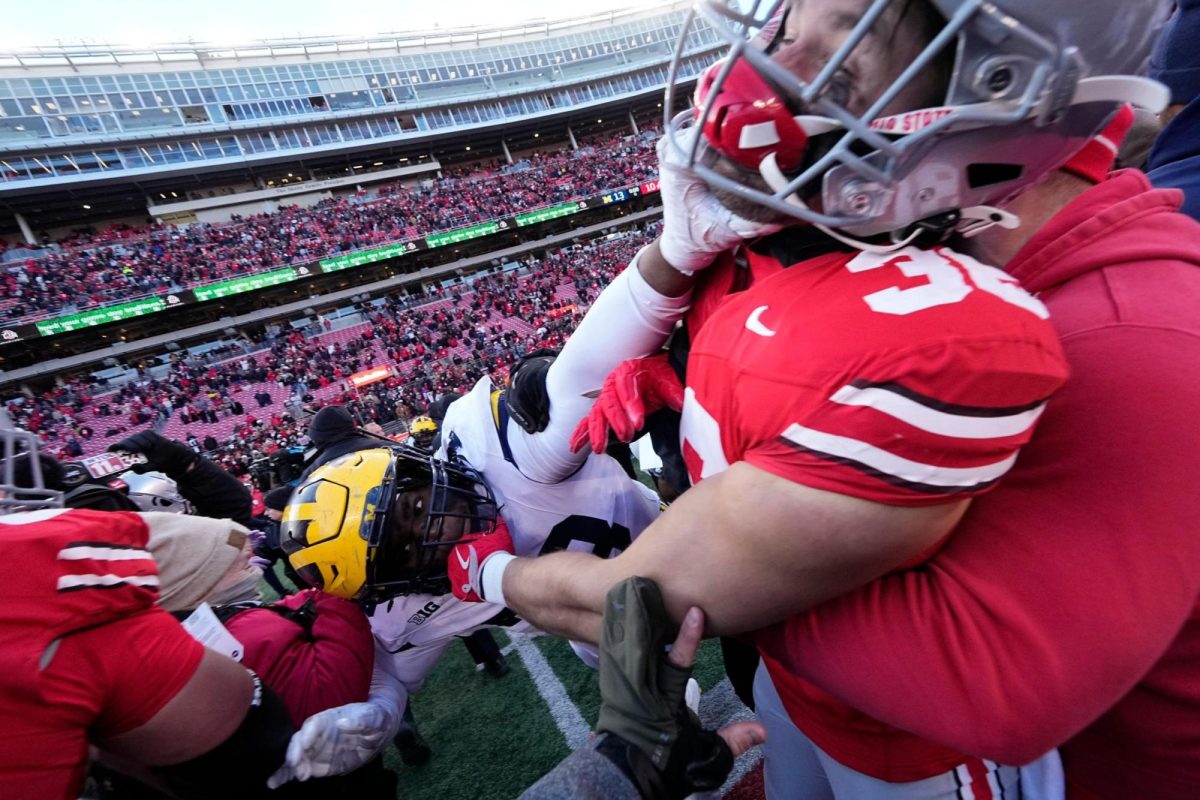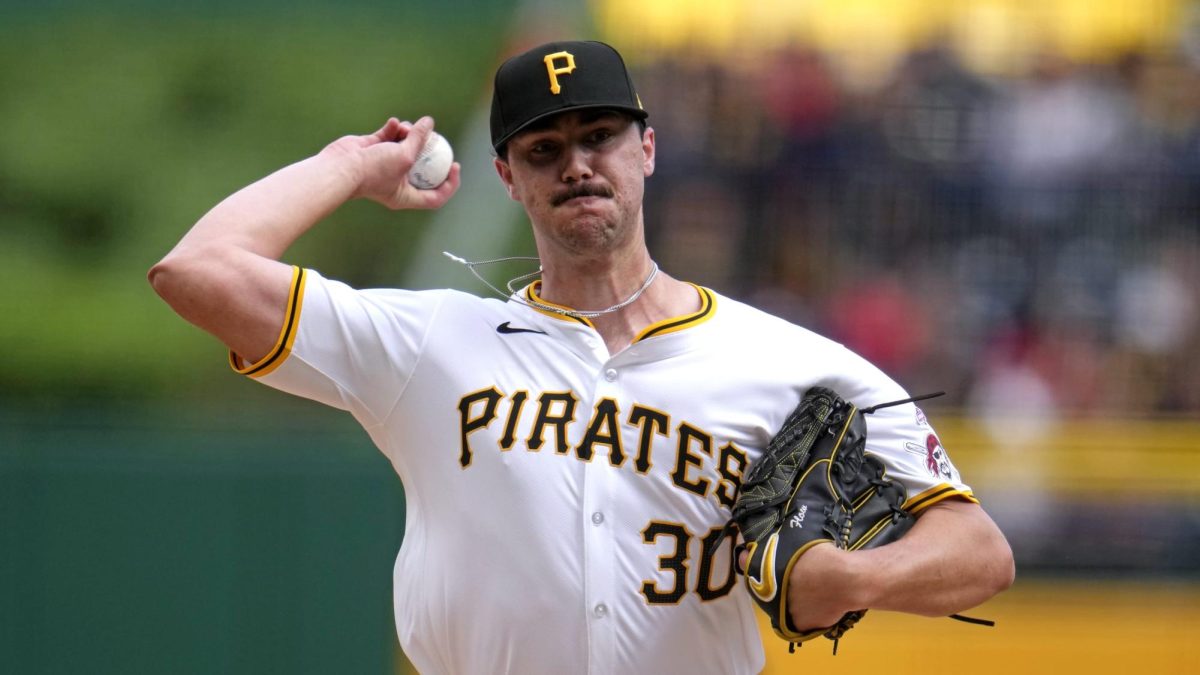Jan. 8, 2018 was supposed to be Jalen Hurts’ big day. Hurts had led the Alabama Crimson Tide to their second straight College Football National Championship after narrowly losing to Trevor Lawrence and the Clemson Tigers in 2017. Entering his second year, he was looking to lead the Crimson Tide to a national championship against their SEC foe, the Georgia Bulldogs. Hurts struggled in the first half, and was benched for the second half in favor of true freshman Tua Tagovailoa, who took over for Hurts and never looked back.
Tagovailoa led the Crimson Tide to a historic comeback over the Bulldogs and was deemed a college football legend overnight. Hurts, who had led the team to two national championship appearances in a row, was now out of a starting job. Hurts had to deal with the difficult dichotomy between being a national champion but no longer being a starter.
“It happened the way it did, and we were national champions at the end of it,” Hurts said, discussing the situation after the game. “Put emotions to the side. I’m not a robot, but you [grow] out of yourself and into the team.”
Hurts was now left with a difficult decision about whether or not he should stay at Alabama in a mentorship role and potentially compete for a starting job, or if he should transfer and have to sit out a season as a redshirt transfer. Hurts decided upon the former, and for the 2018–19 season, remained Tagovailoa’s backup.
Hurts played sparingly for most of the season, until the Crimson Tide played a familiar foe in the SEC Championship, the Georgia Bulldogs. Tagovailoa led the team for three quarters before exiting with an injury in the fourth quarter. In a strange twist of fate, Hurts was the one to come off the bench against Georgia in the same stadium where the National Championship had been played. Hurts miraculously led the Tide to a comeback victory. However, this high was short-lived, as Tagovailoa would regain the starting position for the remainder of the College Football Playoff.
Hurts would decide to leave the University of Alabama and enter the transfer portal following the 2018–19 season. He accepted an offer to play for the University of Oklahoma under notorious offensive guru Lincoln Riley. At Oklahoma, Hurts regained the hype and success that he achieved early on in his career and finished second in Heisman Trophy voting for best college football player during the 2019–20 season. He was ahead of Tagovailoa and only behind Joe Burrow, who had debatably the greatest college football season of all time.
Despite all of this success at Oklahoma, Hurts was seen as a mediocre NFL prospect and was given a third-round grade by Mel Kiper, the most notorious NFL Draft commentator. This grade was mostly due to scouts believing that Hurts relied too heavily on his legs and that Riley creates a QB-friendly college football offensive system that is quite different from a traditional NFL system. Some analysts even believed that Hurts would be better off switching to running back or receiver at the next level.
“I’ve always been a team-first guy, but I think I’m a quarterback,” Hurts said during the 2020 NFL Combine. “I think that’s that.”
The Philadelphia Eagles were coming off a tough playoff loss to the Seahawks in the 2020 NFL Playoffs, and their dedicated fan base was looking to see how the team would improve through the draft.
The team had minor holes throughout the roster, but the fans believed that former MVP candidate Carson Wentz was their franchise QB. During the summer of 2020, many challenging issues arose and Eagles fans tuned in from home to watch who they would select. The Eagles “overdrafted” Jalen Hurts with the 53rd pick. Fans were frustrated and confused.
“With needs at just about every position on the roster, and plenty of quality prospects available, the Eagles chose Jalen Hurts, a backup quarterback, with the 53rd pick in the draft,” Andrew Kulp, a local journalist for NBC Sports, said. “It’s so off the wall, it’s almost not even worth discussing the merits of Hurts as a player because, in theory, he should never see the field.”.
Hurts was widely regarded to be a backup throughout his NFL career, just as he had been in college. No one believed that franchise quarterback Carson Wentz, who was 27 at the time, would be anything less than an above-average to elite quarterback, but it turned out that he was neither. Carson Wentz had a career season in the worst way possible in 2020–21, and Hurts was given his chance to start the final four games of the season.
Hurts played okay in these games, passing for over 1,000 yards and six touchdowns to go along with four interceptions. This gave Eagles fans marginal hope for a team that had a 4–11–1 season after making the playoffs the year prior. In the 2021–22 season, Hurts showed some signs of improvement. He led the Eagles to the playoffs with a 9–8 record, but lost handedly to the Tampa Bay Buccaneers.
Eagles fans were optimistic, but there were doubts about whether or not Hurts was truly a franchise quarterback until the 2022–23 NFL season. Hurts finished second in the MVP race and led the Eagles to a 14–3 record, including two games the team lost when Hurts didn’t start.
That season cultivated into a Super Bowl matchup against Patrick Mahomes and the Kansas City Chiefs. Hurts played incredibly well, putting up nearly 400 combined passing and rushing yards and helping the Eagles score 35 points. His effort was just not enough as Patrick Mahomes and the Chiefs offense soared to a 38–35 win.
Despite the loss, Hurts was now established as one of the elite quarterbacks in the league and was paid like it the following offseason, signing a 5-year, $255 million contract. The Eagles looked to be on a fast track to the Super Bowl after starting the 2023–24 season 10–1. Hurts was seen as an MVP candidate, but then the Eagles started to slide, losing five of their next six to finish 11–6. They did not win their division and ended up losing to a familiar playoff foe in the Buccaneers. Hurts and the Eagles received much scrutiny for this end of season collapse and there were doubts about whether or not the Eagles were truly Super Bowl contenders.
The Eagles knew that they needed a change that offseason and kept their core together but added Pro Bowl running back Saquon Barkley from the Giants and practice squad linebacker Zack Baun from the New Orleans Saints during free agency. The Eagles also used their first two picks in the draft on cornerbacks Quinyon Mitchell and Cooper DeJean.
It took some time for the Eagles to begin playing cohesively, finishing the first month of the season 2–2. Those struggles did not last; the Eagles finished the regular season 14–3 with Saquon Barkley putting his name in the record books as one of the nine running backs to ever break the 2,000 rushing yard mark in a single season. Hurts played a supporting role, his first time in such a position during his NFL career as a starter.
The Eagles made their way to the Super Bowl by routing opponents on the back of their defense and rushing performances. This Eagles team had been dominant, but they had an even more dominant team lining up against them, the Kansas City Chiefs. Mahomes and the Chiefs were 17–2 coming into the game and were looking to three-peat. The Eagles defense was dominant, plain and simple. Interceptions from offseason acquisitions DeJean and Baun helped the Eagles dominate in the first half and build up an insurmountable lead, 27–0.
The defense was dominant, but the Eagles rushing game that had been so elite all season and postseason was almost non-existent against the Chiefs top-notch defense. Hurts had to step up, and he did. The quarterback had just under 300 total yards and was responsible for each of the Eagles touchdowns in their 40–22 victory, a performance that earned Hurts the Super Bowl MVP.
“I don’t play the game for stats,” Hurts said before the Super Bowl. “I don’t play the game for numbers, any statistical approval from anyone else. And I understand that everyone has a preconceived notion on how they want it to look, or how they expect it to look. I told you guys that success is defined by that particular individual, and it’s all relative to the person. And what I define it as is winning. So the number one goal is always to come out here and win.”
In his own eyes, Super Bowl MVP Jalen Hurts is a success.


